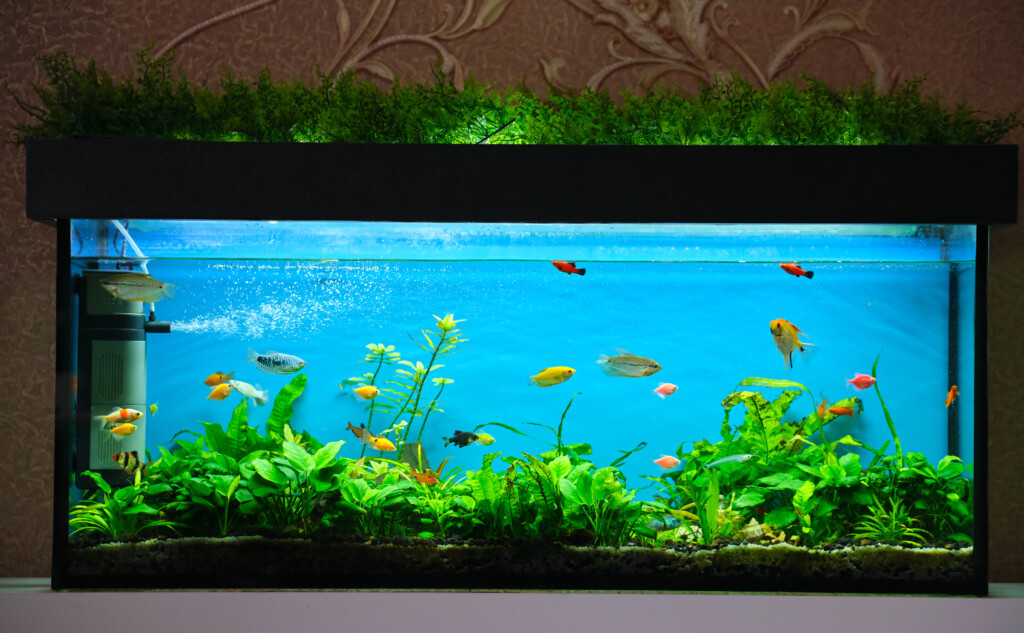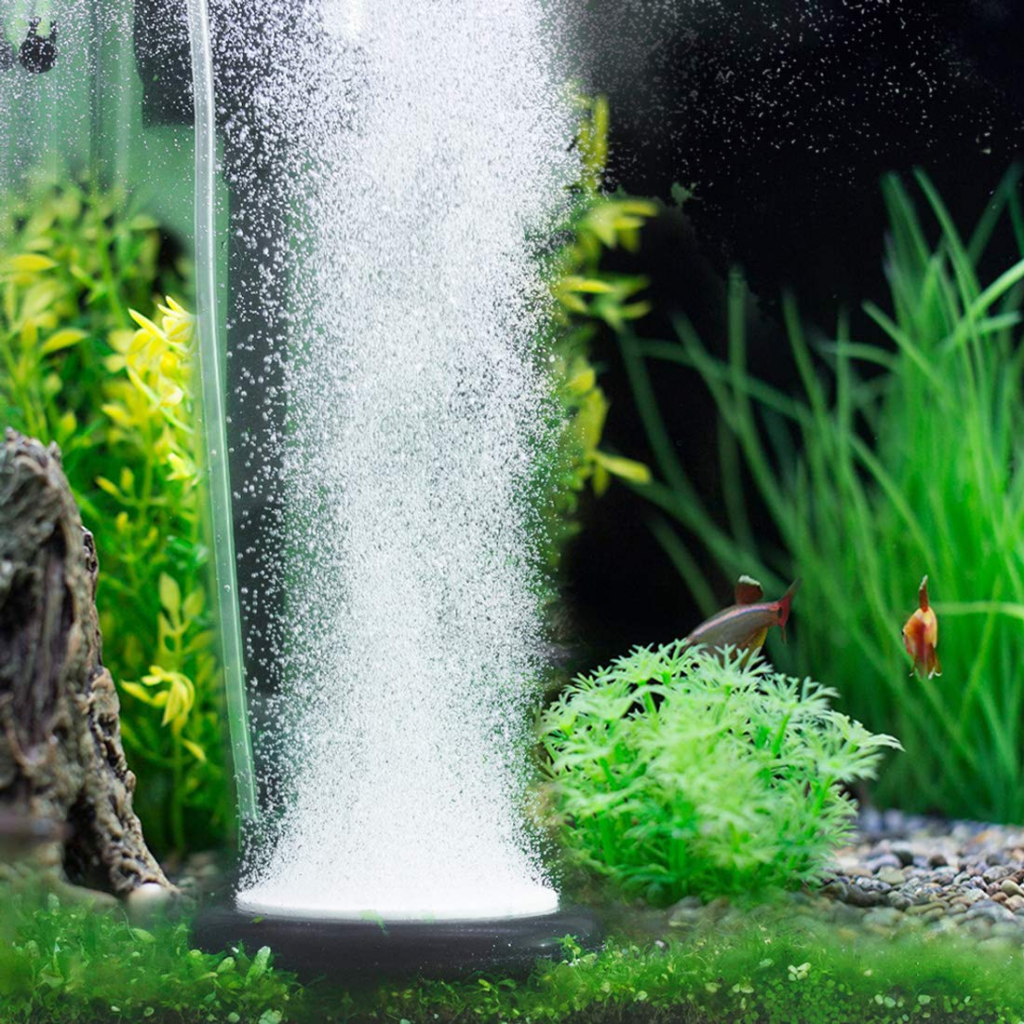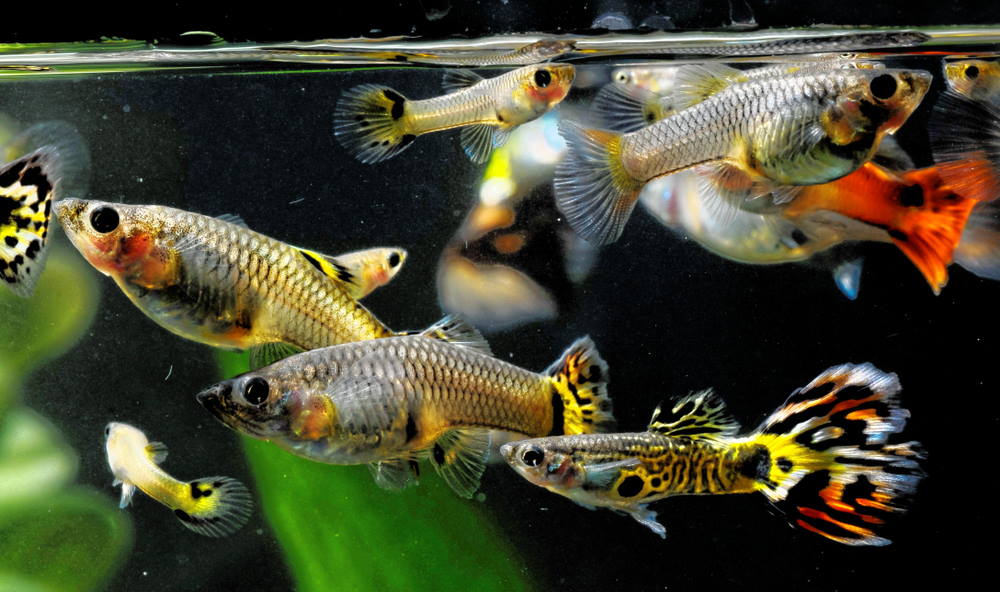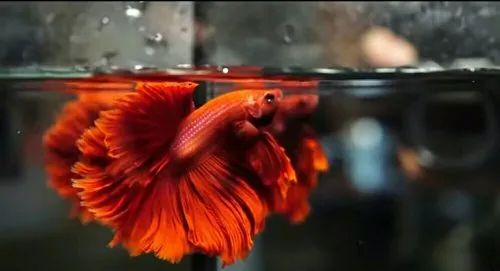When it comes to setting up a fish tank, one of the most common questions is how many fish can be safely housed in a 10 gallon tank. It’s important to consider a few factors to ensure the well-being of your fish and maintain a healthy aquatic environment. In this article, we will explore the basics of fish tank capacity and provide you with some guidelines to help you determine the ideal number of fish for your 10 gallon tank.

Understanding the Basics of Fish Tank Capacity
Before we delve into the specifics, it’s essential to understand how fish tank capacity is determined. The general rule of thumb is to aim for about one small fish per gallon of water in your tank. This guideline takes into account the oxygen and living space requirements of the fish. However, it’s crucial to remember that fish tanks are complex ecosystems, and there are additional factors to consider.
Factors Influencing the Number of Fish for a 10 Gallon Tank
Size of the Fish
The size of the fish you intend to keep plays a significant role in determining the number of fish suitable for a 10 gallon tank. Smaller fish, such as neon tetras or guppies, can be housed in larger numbers compared to larger species like goldfish. It’s important to consider the adult size of the fish when planning your tank.
Species Compatibility
Another crucial factor is the compatibility of the fish species. Some fish get along well together and can coexist peacefully in the same tank, while others may be territorial and aggressive. Research the compatibility of the species you intend to keep to avoid any conflicts and ensure a harmonious tank environment.
Activity Levels
The activity levels of the fish should also be taken into account. Some fish, like danios, are known to be quite active and require more swimming space. In a 10 gallon tank, it’s important to strike a balance between the number of fish and their activity levels to prevent overcrowding.
Tank Filtration and Maintenance
Proper tank filtration is crucial for maintaining water quality. A 10 gallon tank should have an efficient filter that can handle the waste produced by the number of fish you intend to keep. Regular tank maintenance, such as water changes and filter cleaning, is essential to prevent the buildup of harmful toxins.
Oxygen Requirements
Fish rely on dissolved oxygen in the water to breathe. A 10 gallon tank should provide adequate oxygen for the number of fish housed within it. Overstocking the tank can lead to a decrease in oxygen levels, causing stress and potential health issues for the fish. Ensure proper aeration and consider the oxygen needs of the fish species you choose.

Calculating the Ideal Fish Count for a 10 Gallon Tank
Now that we have covered the factors influencing fish tank capacity, let’s discuss how to calculate the ideal fish count for a 10 gallon tank.
Simple Fish-to-Water Ratio
As mentioned earlier, a rough guideline is to have one small fish per gallon of water. So a 10 gallon tank can accommodate up to 10 small fish. However, it’s important to consider the other factors we discussed earlier to ensure the well-being of the fish.
Adjusting for Different Fish Sizes
If you plan on keeping larger fish, you may need to further reduce the number of fish to provide enough swimming and living space. Larger fish produce more waste and may have higher oxygen requirements.

Considering the Fish’s Biological Needs
Researching the specific biological needs of the fish you intend to keep is crucial. Some fish have specific requirements for water parameters, temperature, and tank setup. Taking these factors into consideration will help you determine the appropriate number of fish for your 10 gallon tank.
Recommended Fish Options for a 10 Gallon Tank
Now that you have a better understanding of the factors influencing fish tank capacity and how to calculate the ideal fish count, here are some recommended fish options for a 10 gallon tank:
Small Freshwater Fish Species
Some small freshwater fish species that can thrive in a 10 gallon tank include neon tetras, guppies, mollies, and endlers. These fish are colorful, active, and generally peaceful.
Peaceful Community Fish for a 10 Gallon Tank
If you prefer a community tank, consider adding species like cherry barbs, platies, or dwarf rasboras. These fish are generally compatible and can coexist peacefully.

Fish Suitable for Nano Tanks
In recent years, nano tanks have gained popularity. Some fish species that work well in these smaller setups include bettas, sparkling gouramis, and celestial pearl danios. These fish are captivating and bring a unique charm to your 10 gallon tank.
Choosing the Right Combination
When selecting fish for your 10 gallon tank, it’s important to choose a combination that suits the tank size, compatibility, and activity levels. A variety of species can create a visually appealing and harmonious tank environment.
Betta Splendor in a Small Aquarium
A 10-gallon tank, though a small aquarium, is a perfect fit for a single, inch long betta fish. In their natural habitat, bettas inhabit small ponds and rice paddies, making this small tank a suitable environment. Ensure good filtration to prevent poor water quality, and add java moss to mimic their natural habitat and provide hiding places. You can also add a few cherry shrimp, as these small species typically coexist peacefully with betta fish.

Tips for Maintaining a Balanced Fish Tank in a 10 Gallon Setup
Keeping a balanced fish tank requires proper care and maintenance. Here are some tips to help you maintain a healthy and thriving 10 gallon tank:
Regular Water Testing
Regularly test the water parameters, such as pH levels, ammonia, nitrite, and nitrate levels, to ensure they are within the acceptable range for your fish species.
Proper Feeding and Nutrition
Offer a balanced diet to your fish and avoid overfeeding. Uneaten food can contribute to water pollution and affect the overall quality of your tank.
Tank Cleaning and Water Changes
Perform regular tank cleaning, including removing debris and excess waste. Partial water changes are also necessary to maintain water quality.
Monitoring Fish Behavior and Health
Observe the behavior of your fish regularly. Any signs of stress, aggression, or illness should be addressed promptly. Consult a professional if needed.

Seeking Professional Advice
If you are new to fishkeeping or have specific concerns about your 10 gallon tank, don’t hesitate to seek advice from a knowledgeable aquarium professional.
Conclusion
While the general rule of thumb is about one small fish per gallon of water in a 10 gallon tank, several factors should be considered to ensure the well-being of your fish. By taking into account the size, compatibility, activity levels, and the specific needs of the fish species, you can create a thriving and balanced aquatic environment. Remember to research and plan carefully when selecting fish for your 10 gallon tank and offer proper care and maintenance to keep them healthy and happy.


